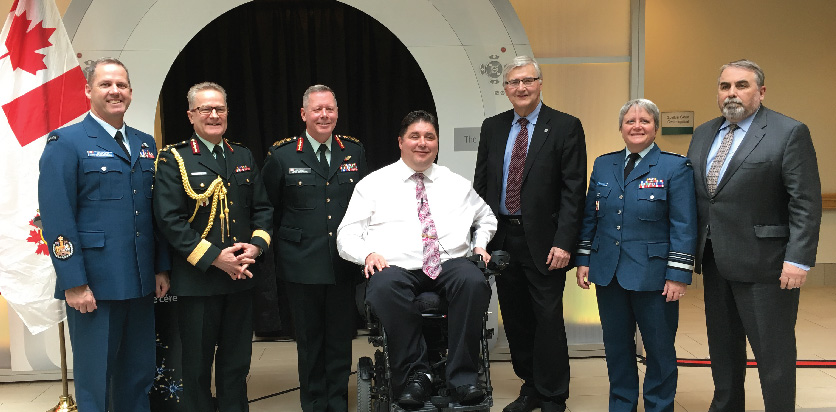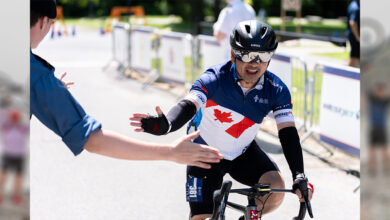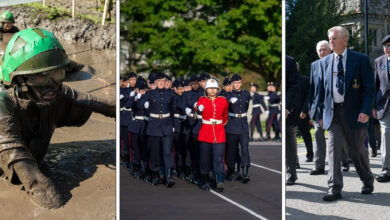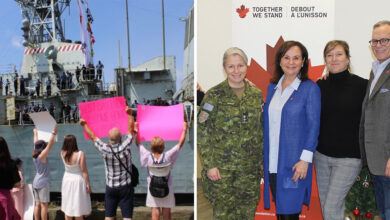Events
Canadian Armed Forces investing $2.65 million to Royal Ottawa Mental Health Centre
The Canadian Armed Forces (CAF) made a groundbreaking announcement today about its commitment to invest $2.65 million, over four years, in brain imaging technology, in collaboration with the Royal Ottawa Mental Health Centre. It is the hope that through this new state-of-the-art technology, mental illnesses can be better understood, treated and, perhaps one day, be prevented.
“This partnership will see experts at The Royal Ottawa Mental Health Centre and our military mental health professionals working together towards a common goal of developing a new understanding of the effects of mental illness on brain functions. I see this as a key investment in helping our Canadian Armed Forces members and veterans who are fighting to overcome mental health issues,” said General Jonathan Vance, Chief of the Defence Staff.
The CAF and the Royal have entered into an agreement in which the CAF will have the ability to access the Positron Emission Tomography (PET scan)/ Functional magnetic resonance imaging (fMRI), the only one of its kind in the entire country solely dedicated to brain and mental health research.
“Investment in research is critical to our understanding of mental illness, and to finding new and more effective treatments. This partnership, especially our investment in the PET/fMRI system, will provide Canadian Forces Health Services with access to state-of-the-art technology to advance mental health care for our members and veterans,” said Brigadier General H.C MacKay, Surgeon General.
The PET scan identifies the parts of the brain that are metabolically active, using labeled molecules while the fMRI is a technique used to measure brain activity by detecting changes in blood oxygenation and flow that occur in response to neural activity.
“It gives us the ability to not only to image the anatomy, but we can see the signals going between the different parts of the brain and as we can understand what the signalling is and where there might be problems with signalling in the brain, because of mental illness, it will give us a better understanding of how we might treat mental illness,” added MacKay.
The technology will allow doctors and scientists to monitor the effect of drugs used to treat a variety of mental illnesses such as depression and PTSD. This can lead to faster diagnoses and personalized treatment.
The Royal Ottawa Mental Health Centre has been working with military personnel, veterans and their families to deliver specialized care for over six years.
“The Royal and the Canadian Armed Forces share a strong dedication to the well-being of our soldiers, veterans, and their families and we are proud to be expanding our research collaboration. Mental health injuries can be extremely debilitating but this research will be a game-changer. With a better understanding of how PTSD and Operational Stress Injuries affect the brain, we aim to rewrite the stories of suffering into stories of recovery,” said George Weber, President and CEO of The Royal.
The Surgeon General hopes that this technology could change the future of mental health medicine.
“We may even be able to prevent mental illness, in the long run. It’s really about understanding whats going on in the brain that this is going to give us the ability to do with this technology. It’s exciting,” stated MacKay.
From left to right:
Canadian Forces Chief Warrant Officer Chief Warrant Officer Kevin West, Brigadier-General H.C. MacKay, General Jonathan Vance, Chief of the Defence Staff, The Honourable Kent Hehr, Associate Minister of National Defence, George Weber, President and CEO of The Royal, Lieutenant-General C.T. Whitecross, and Bill Jones, Senior Associate Deputy Minister National Defence.











